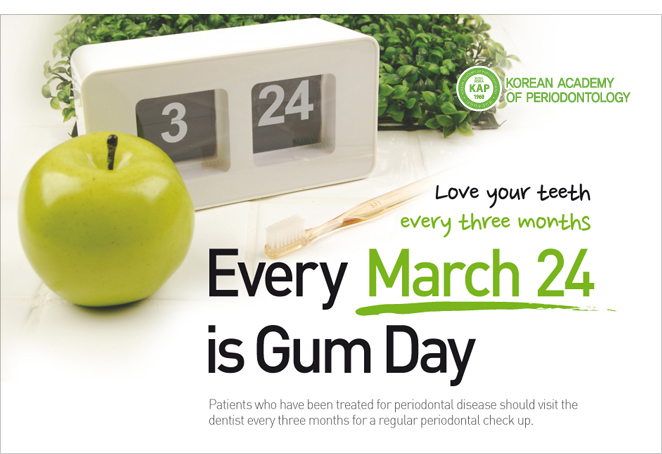Background
In recent years it has become known that periodontal disease is not just aninfection, but is associated with such lifestyle diseases such as diabetes and atherosclerosis (hardening and narrowing of arteries). The Korean Academy of Periodontology aims to provide people with correct and up to date health information, and knowing how important it is to inform the people of the realities of periodontal disease, we have designated the 24th day of March as 'Gum Day'. On this day, the KAP promotes dissemination of accurate information about periodontal diseases and how to prevent it. The reason for the day held on March 24 is as follows. March, the third month, signifies that every three months periodontal disease-causing germs build up and require removal. And the reason for it being appointed to the 24th day has its roots in Korean language. In Korean, two is yi, which is the first syllable in the word 'yibbal', which means tooth. Four in Korean is 'sa', also the first syllable of the word 'sarang', which means love. So in all, March 24 contains the meaning "Love your teeth every three months". Patients who have been treated for periodontal disease should visit the dentist every three months to make sure that they are taking care of their teeth and gums properly and that there are no buildups of plaque and to receive treatment if there are.
According to the Korean National Outpatient Health Insurance Statistics 2013, gingivitis and periodontal disease account for more than 10 million people visiting their doctors each year, making it the 2nd most common reason for an outpatient visit. This fact alone should make the prevention and treatment of periodontal disease the responsibility of all periodontists all over the country l.
A variety of events were held this year on the 6th anniversary of Gum Day to promote awareness. I hope that the issue of periodontal disease is given more and more attention in the future.



